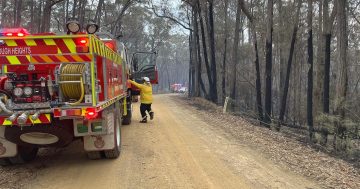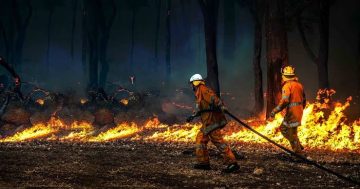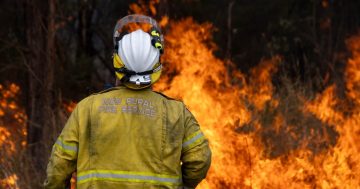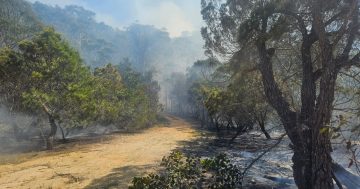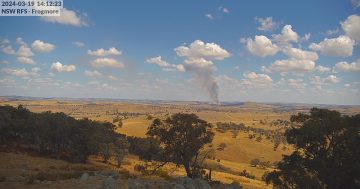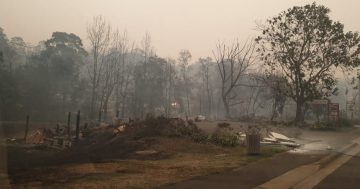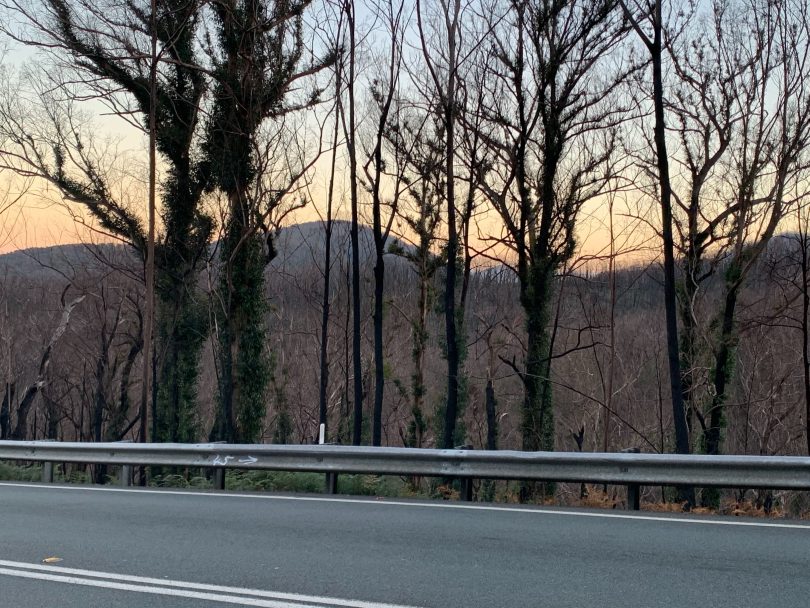
The impact of the Black Summer bushfires was clear on the Clyde Mountain. Photo: Kim Treasure.
The latest Seasonal Bushfire Outlook from the Australasian Fire Authorities Council (AFAC), released on Wednesday (23 August), forecasts that some areas of the South Coast, including around Bega, have an increased bushfire potential for spring compared with the average risk.
New South Wales Rural Fire Service (NSW RFS) district manager for the Far South Coast, Superintendent Angus Barnes, said the designation was likely due to the fuel load in the region.
“For the upcoming fire season, there is an increased risk in the areas of the district that didn’t burn in the 2019-2020 fire season,” he said.
“The areas that did burn have seen a significant amount of regrowth.
“While it can hold fire, that doesn’t pose the same sort of risk because it’s still very green and there isn’t a lot of fuel load on the ground.”
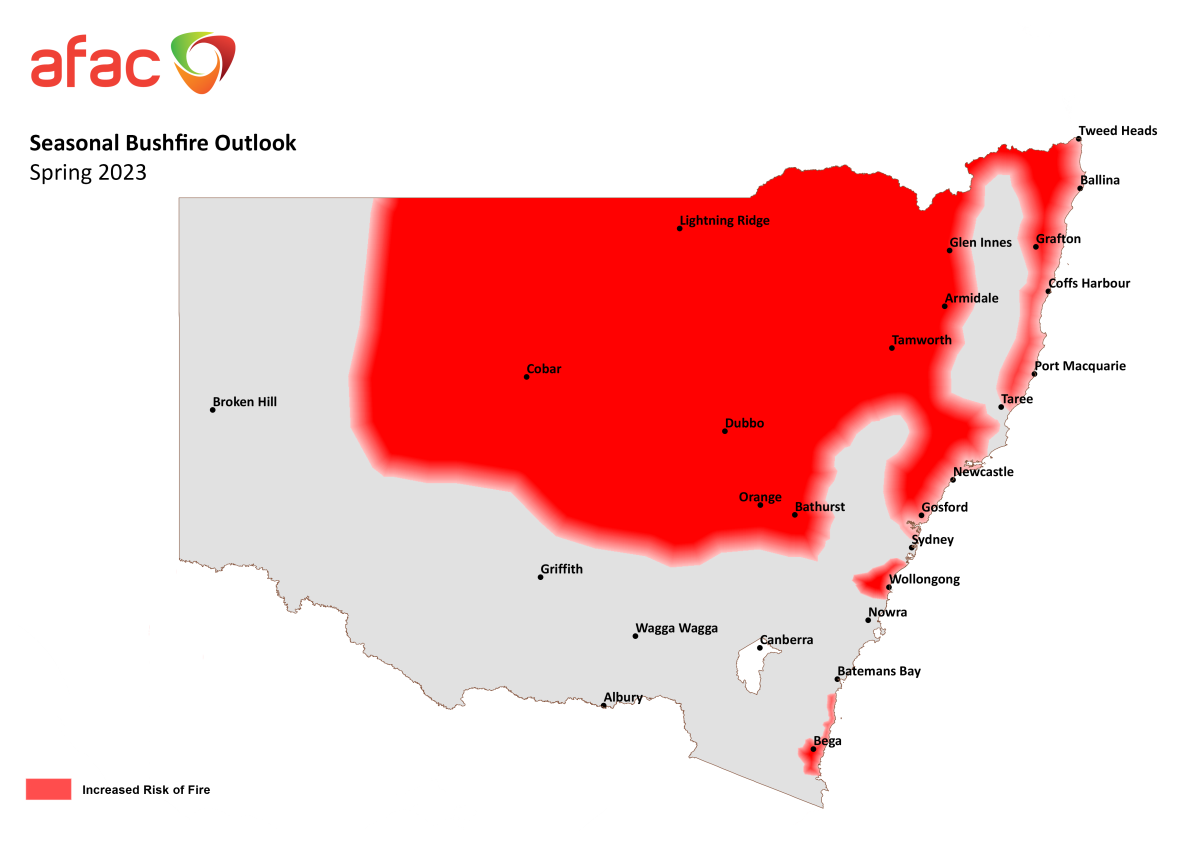
The NSW section of the report shows that parts of the Far South Coast are among the regions rated as having an increased fire risk. Image: AFAC.
Supt Barnes said the NSW RFS had been carrying out hazard burns in recent weeks where possible.
“As the landscape regrows and vegetation recovers from the 2019-2020 fires, we’ll see a change in the fuel loads across the district,” he said.
“In the Bega to Eden area, that wasn’t impacted by fire directly, that poses a greater risk than some of the other areas because it’s got a high fuel load.”
Other areas identified in the AFAC report as having an increased risk because of areas not burning during the Black Summer bushfires include those north of the Hunter Valley and around the Sydney Basin.
According to the AFAC report, Australia recorded rainfall 20 per cent below average against the 1961-1990 average from May 2023 to July 2023.
Supt Barnes said he and his team were also keeping an eye on the rain gauge.
“We have experienced a significant dry period this summer,” he said.
“We haven’t seen the sort of rain that we normally get on the Far South Coast, so fuel loads are a lot drier that we’ve experienced.”
The AFAC report also found that, in the coming spring, Australia will likely see “above-average temperatures and below-average rainfall for almost the entire country”.
Across the rest of the country, parts of the Northern Territory, South Australia and Victoria are also forecast to have an increased spring bushfire risk.
The Australian Capital Territory was tipped to have a normal bushfire risk in spring, though drier and warmer weather conditions could raise the possibility of bushfires and grassfires in summer.
Supt Barnes said it was key the public took the time to prepare as the warmer months approached.
“The most important message for the community, at this moment, is that while our firefighters continually train and prepare for a fire season, it’s important that property owners do what they can as well,” he said.
“It’s been a while since the 2019-2020 fires, so people need to get back in the practice of making sure they’ve removed flammable materials from around your house, cleared leaves from your gutters and checked your hose can actually reach all the way around the house.
“It takes five minutes to discuss a bushfire survival plan with your family, but it’s really important that everybody in the family knows what the plan is and has an understanding of when to go and what to take if fire threatens the home.”







